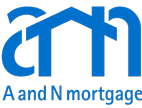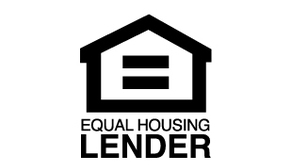If you’re familiar with the world-famous game Monopoly, banks and lenders generally don’t need to explain the concept of a mortgage to you. For that, you need to know the difference between a registered mortgage and an equitable mortgage.
However, for some first-time homebuyers, owing money to banks, government-backed lenders, and private financial institutions for 20 to 40 years feels like a daunting situation.
Our lending and real estate experts at A and N Mortgage can help you make the most significant investment of your lifetime.
We’ll help you buy a home and create a mortgage in the most cost-efficient and easy-to-understand ways that even people with zero experience with lenders can follow.
You can find mortgages of all shapes and sizes when you shop around with a broker. However, only one or two forms of mortgages will suit your unique financial situation.
You may benefit from an FHA loan if you’re a senior citizen, a VA mortgage if you’re a veteran, or an adjustable-rate mortgage if you’re expecting a cash infusion in the not-too-distant future.
Our mortgage experts will outline the differences between a registered mortgage and an equitable mortgage in this article.
We will explain the legal process and standards you have to pass to get either one for a real estate property.
We will also discuss particulars, like ownership documents, notices of intimation, and equitable mortgage stamp duties, so you don’t become lost when speaking with a lender.
Registered Mortgages and Equitable Mortgages
The differences between an equitable and a registered mortgage lie in the details. The two are essentially the same, but they have different costs, market bases, and registration processes.
They also cater to different kinds of risk appetites.
What Is an Equitable Mortgage?
Lenders, brokers, and financial professionals call equitable mortgages an “equitable agreement” or an “equitable loan home agreement.” The dictionary defines equitable as fair and impartial.
Under an equitable mortgage, a lender and a borrower create terms within the loan documents they draft that they view as profitable for both sides without third-party interference from a legal or government body.
If you want to borrow money through an equitable mortgage agreement, you have to transfer the title of your real estate holdings to your lender, which will imply a charge on your home or commercial property.
You will need to verbally confirm your intention to charge your property in favor of your lender so that the agreement takes effect. As the borrower, you will receive agreed-upon sums from your lender, who will hold your real estate as collateral.
Your lender will keep your title deed as security. If you default on your debt, your lender will take control of your property and sell it through an auction. So, to wrap up, three things need to happen before you can be a borrower in an equitable mortgage setup:
- Approach a lender and incur a present or future debt
- Transfer the title of your property to your lender or an agent with a notarized declaration
- Verbally declare your intention to your lender that you want to create a mortgage at the notarization center
What Is a Registered Mortgage?
Mortgage professionals also call a registered mortgage a Deed of Trust or a complex home loan agreement. Compared to an equitable mortgage, you need to satisfy more legal conditions as a borrower before you can qualify.
Under a registered mortgage, you transfer your title to a bank or private lending institution through a formal transfer of interest overseen by a sub-registrar.
This sub-registrar will document the entire legal process and declare that you satisfy all conditions, such as having enough money for a down payment or collateral to qualify for a registered mortgage.
Much like the provisions in an equitable mortgage, your lender will keep the rights to your property and may auction it if you default on your debt as a borrower in a registered mortgage agreement.
However, they may also rent it out, develop it, or let another financial institution acquire it. Sometimes, borrowers won’t have the chance to buy back their seized properties at an auction.
Essential Differences Between Equitable and Registered Mortgage
While at first glance, the difference between equitable and registered mortgages simply includes third-party interference, they target different kinds of borrowers, budgets, and risk appetites.
For example, some people are not comfortable with their lenders owning their property if they can’t pay back their debts. Getting a registered mortgage may not be a smart move for them.
Legal Process and Registration Differences
The difference lies in the name. You must register a registered mortgage with the local land registration authority or a governing body that keeps a record of land holdings in your state. These offices use different systems across different territories.
For example, Hawaii, Colorado, New York, Virginia, Minnesota, Washington, Ohio, and North Carolina use different versions of the Torrens System.
Some states require sub-registrars to enter title transfers into a tract index. If you or your lender fails to sign the agreement within 30 days of the closing date of your mortgage, you have to file a notice of intimation to the SRO (Sub Registrar’s Office) before paying your stamp duties.
Review your local real estate recording laws or call our hotline to see how land registration works in your area.
No legal registration occurs in an equitable mortgage agreement between a lender and a borrower.
The Difference in Lender and Bank Rights
In an equitable mortgage, your lender can only sell your property through an auction if you have a default in loan repayment.
In a registered mortgage, your bank has more legal freedom to do whatever they want with your property, including selling it to other lenders who may sell it back to you at an inflated price.
The Difference in Affordability
Notary fees are the only dues you need to pay in an equitable mortgage. It’s one of the most cost-effective lending instruments in the financial industry because it bypasses the need for financial advisors, brokers, and layers of corporate red tape to make a life-changing investment.
A registered mortgage can take more time to complete than an equitable mortgage. It’s a tad costlier as well.
The Difference in Costs Involved
If you sign up for a registered mortgage, you must pay 5% of your home value in stamp duties. In contrast, you have to pay between 0.1% and 02% of your real estate value for an equitable mortgage stamp duty.
Which One Entails More Risks?
At A and N Mortgage, we advise our clients to create equitable agreements only with lenders with whom they share a previous professional and personal relationship and whom they deem trustworthy.
Equitable mortgages carry more risk as no legal provisions can bind the actions of borrowers and lenders.
Registered mortgages are virtually risk-free as authorities can enforce the legal conditions found in the loan document between a lender and a borrower.
What Are the Key Similarities Between Registered Mortgages and Equitable Mortgages?
Registered and equitable mortgages have the same function. They transfer the rights of a property to a bank, government-backed lender, or a private financial institution, who will hold those rights until you can pay back 100% of the money you owe them.
You will also need to pay interest, which varies based on an adjustable mortgage rate or fixed mortgage rate.
In many urbanized areas where real estate pric18d es are soaring, it can be challenging to invest in real estate without a mortgage, even as a member of the upper-middle class.
The percentage of the property you own free and clear is your equity, and the remaining money you owe to your lender is your loan balance.
Registered and equitable mortgages refer to lending agreements that financial institutions enter with you in good faith that someday, you’ll be able to repay all the money you owe, plus agreed-upon origination fees, closing costs, and interest to keep them in business.
Registered Mortgage and Equitable Mortgage FAQs
1. When Do You Form a Registered Mortgage?
A registered mortgage is a complex arrangement between a borrower and a lender. You create a registered mortgage after transferring 100% of your rights to your property to your lender, which requires the approval of your local Torrens office.
2. How Do You Create an Equitable Mortgage?
You create an equitable mortgage by delivering your title documents to your lenders with the express intention of incurring a future or present debt, which you have to express verbally. This delivery must take place in front of a notary and bear a notarized seal on the paperwork.
3. Is an Equitable Mortgage Required To Be Registered?
An equitable mortgage is an agreement between two private parties and requires no interference or clearance from a land registration body. You don’t need to register your equitable mortgage with any government office.
4. For What Reasons Do Banks Prefer Registered Mortgages?
Banks and private lenders tend to prefer registered mortgages for their low-risk qualities. They stand a higher chance of making back their money or gaining a new property from a defaulting lender without resorting to legal action if the provisions in the loan documents are airtight.
The borrower’s signature on the paperwork guarantees them the right to enforce their loans and legally foreclose on private properties.
Do You Need More Help With registrable Registered or Equitable Mortgage?
Mortgages can be worth hundreds of thousands of dollars, and they can last a lifetime. People might take advantage of you if you don’t know what you’re getting into, so learn more about registered and equitable mortgages today by contacting the experts at A and N Mortgage. Call our team at 773-302-5626 and get a free consultation with one of our experienced loan officers.
A and N Mortgage Services Inc, a mortgage banker in Chicago, IL provides you with high-quality home loan programs, including FHA home loans, tailored to fit your unique situation with some of the most competitive rates in the nation. Whether you are a first-time homebuyer, relocating to a new job, or buying an investment property, our expert team will help you use your new mortgage as a smart financial tool.







